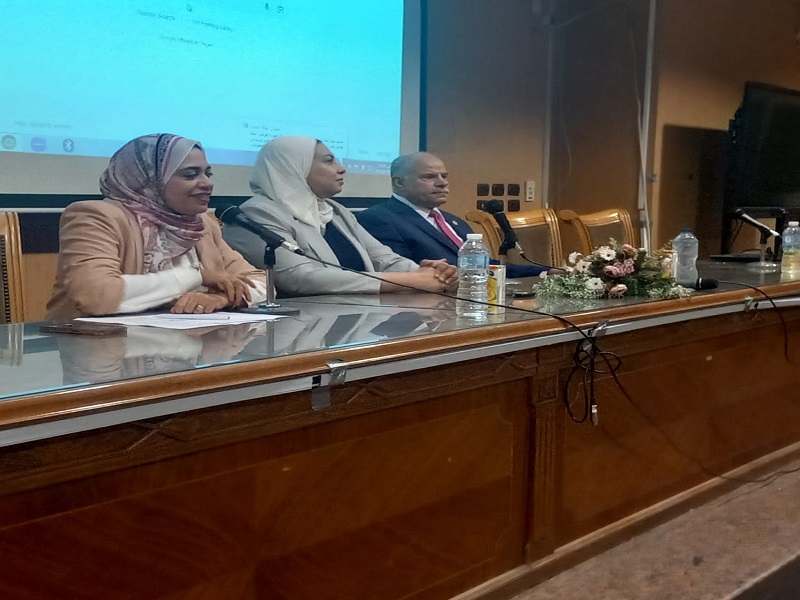Cybercrimes...the first seminar of the cultural season at the Faculty of Al-Alsun
The Faculty of Al-Alsun at Ain Shams University organized a seminar titled "Cybercrimes," under the patronage of Prof. Mohamed Diaa Zain El-Abedeen, President of the University; Prof. Ghada Farouk, Vice President for Community Service and Environmental Development; Prof. Salwa Rashad, Dean of the Faculty; and supervised by Prof. Yumna Safwat, Vice Dean for Community Service and Environmental Development. The seminar was presented by Lieutenant General Raafat El-Sharkawy, former Assistant Minister of Interior, as part of the first activities of the Faculty's Community Service and Environmental Development sector for the academic year 2024/2025.
In her opening speech, Prof. Salwa Rashad, Dean of the Faculty, emphasized the need to raise awareness among participants about the concept of cybercrimes, their types, and their dangers to society. She noted that the spread of cybercrimes leads to numerous risks and threats, such as harm to the economy, national security, and family relations, causing disputes among family members that could lead to family breakdown. This is due to various outcomes caused by certain types of cybercrimes, such as defamation, spreading false news, and rumors.
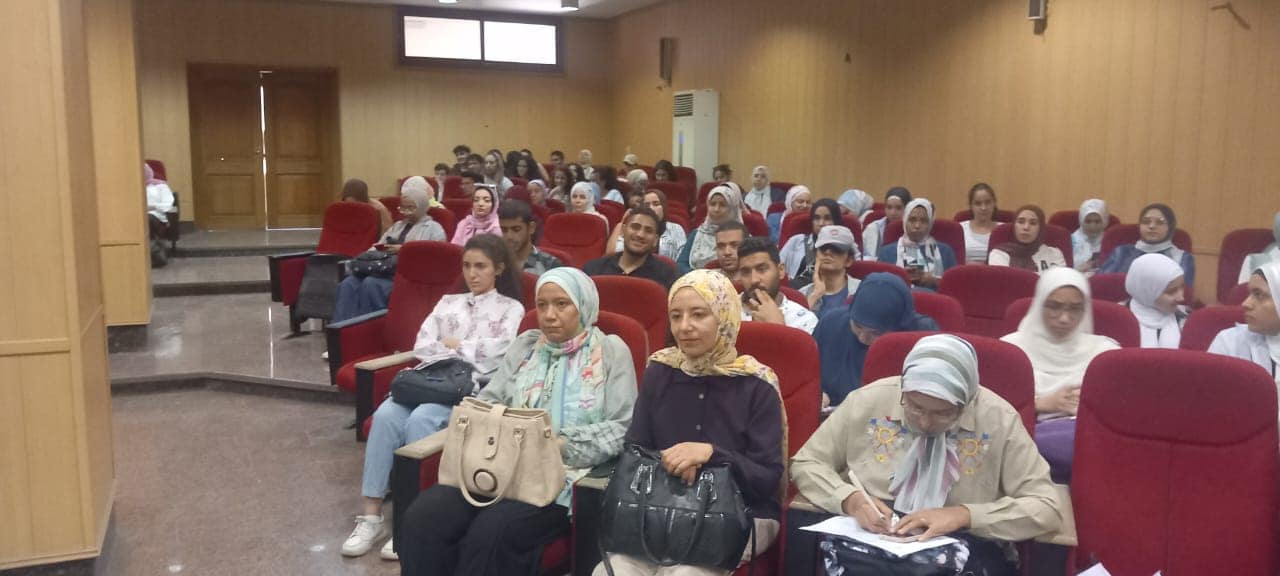 |
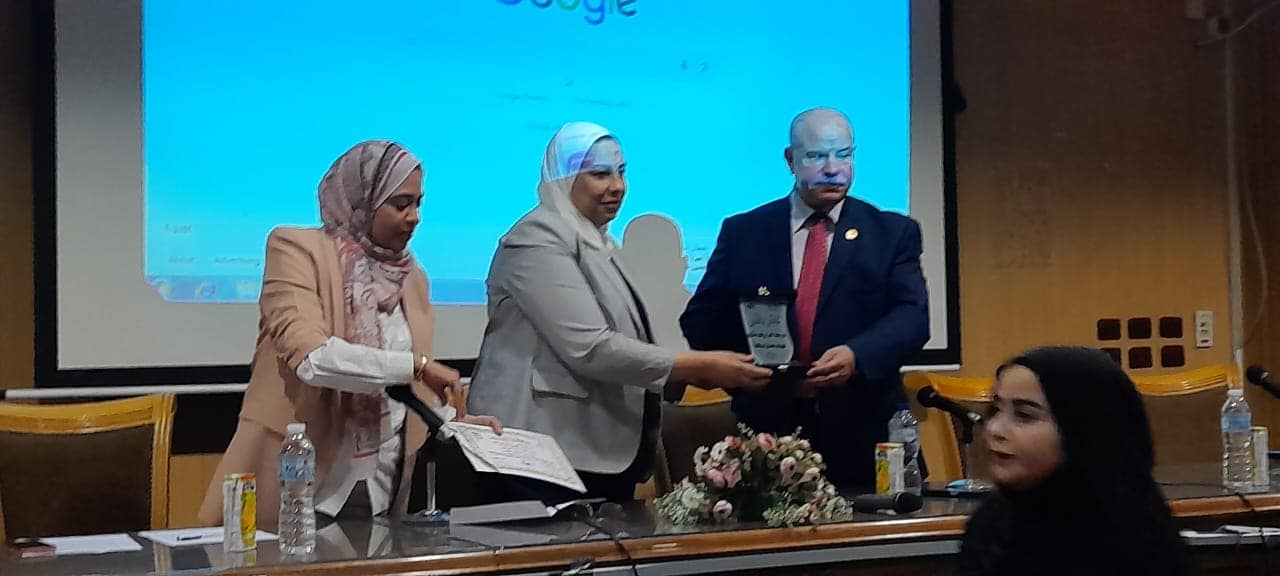 |
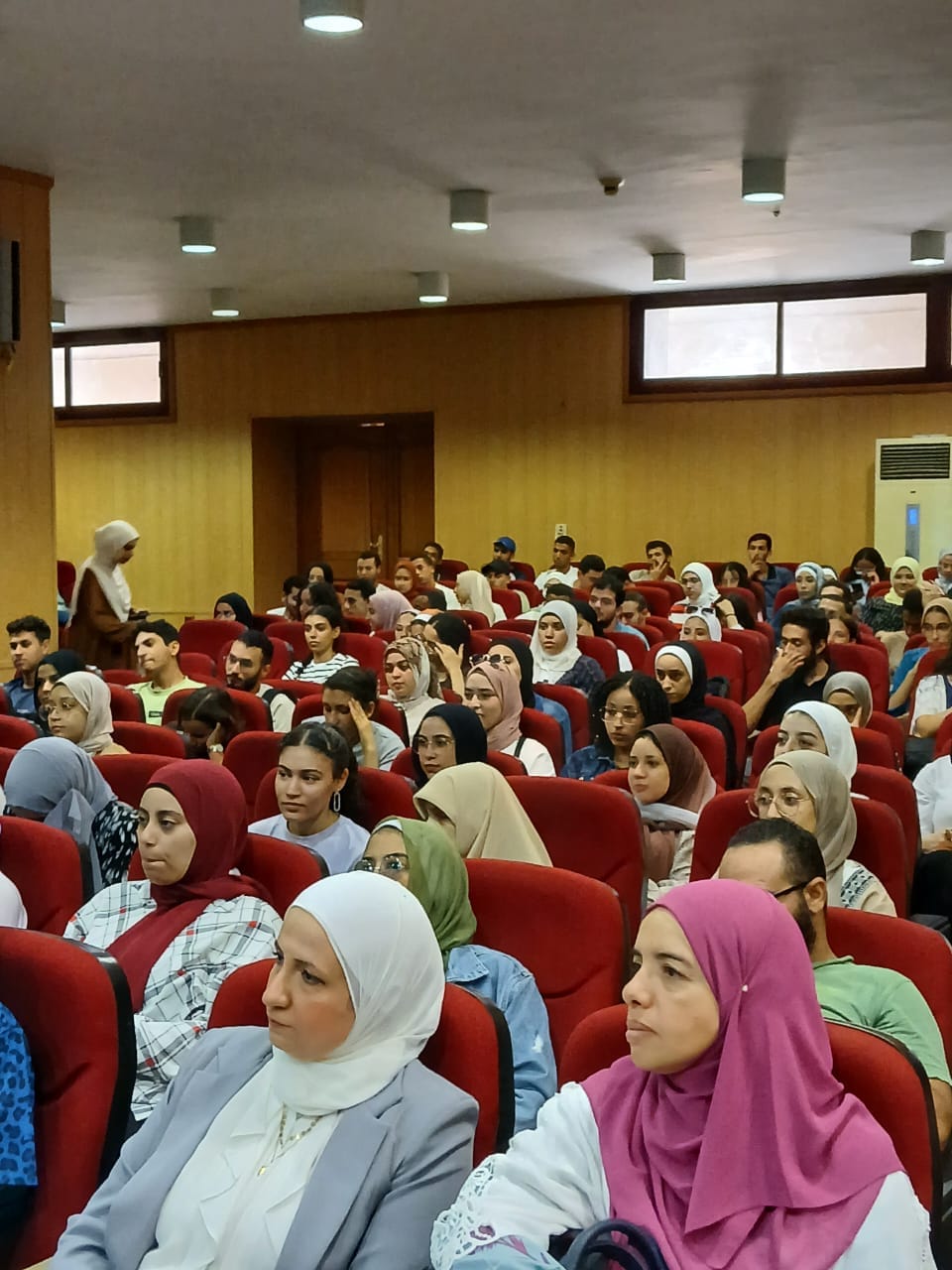 |
||
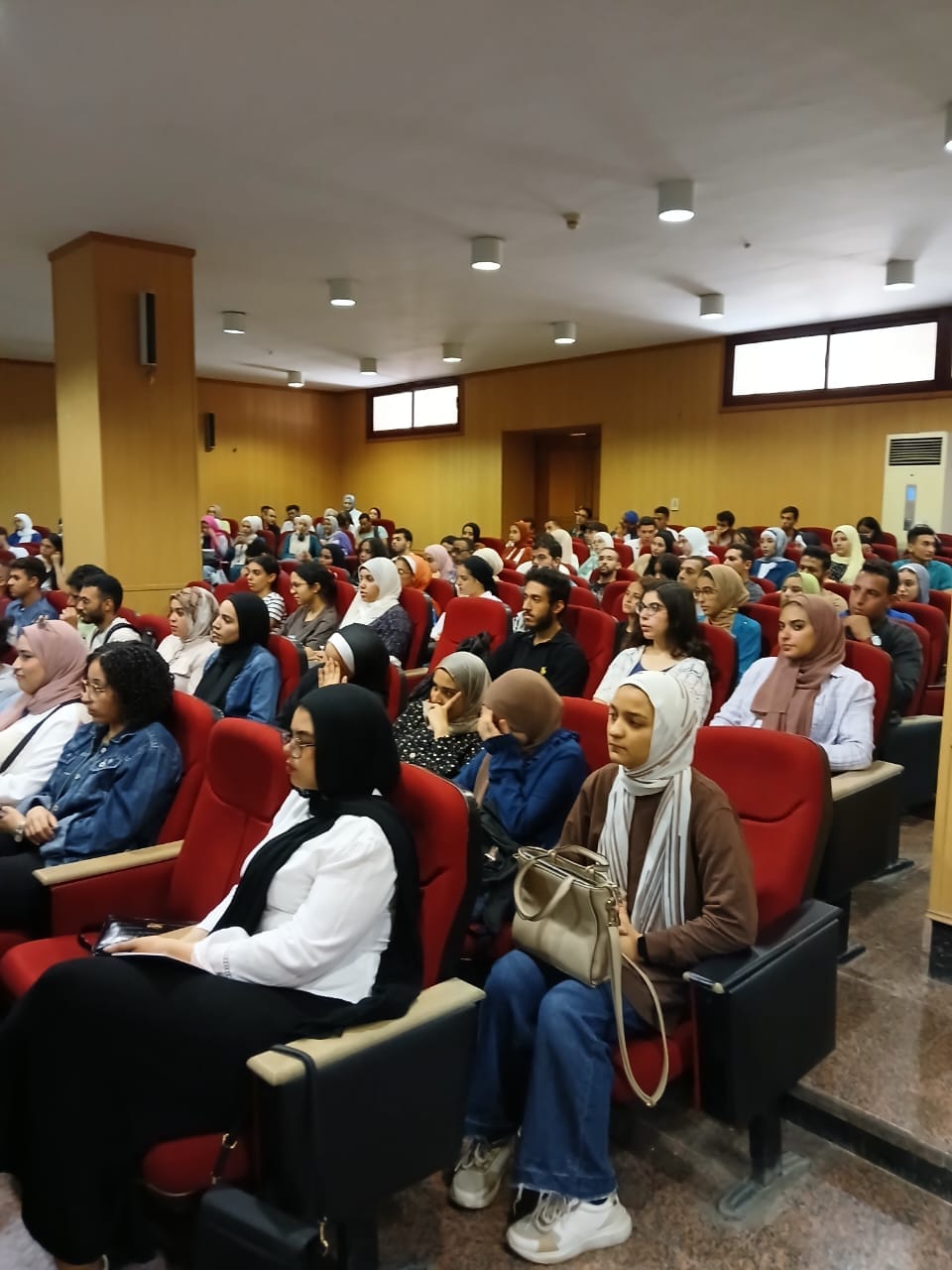 |
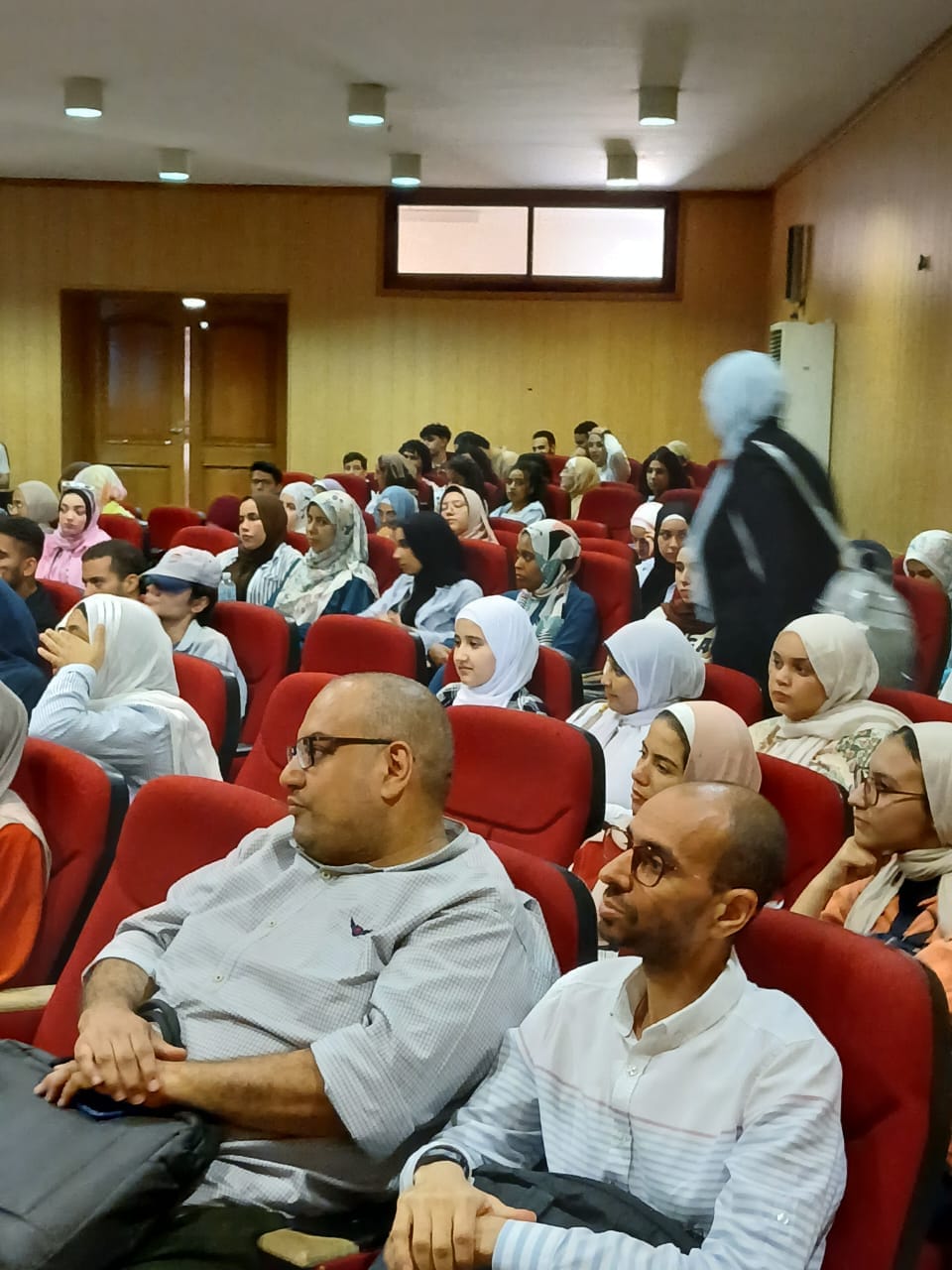 |
Prof. Youmna Safwat, Vice Dean for Community Service and Environmental Development, stressed that cybercrimes have become widespread due to the rapid growth of the internet and its increasing number of users. The internet is an open, borderless world that is difficult to monitor or restrict, making it crucial to raise awareness of its dangers across all segments of society.
In his opening remarks, Lieutenant General Raafat El-Sharkawy, former Assistant Minister of Interior, stated that Egypt has recently witnessed a noticeable increase in cybercrimes, which vary in type, severity, and frequency, spreading across all governorates, increasing their danger and the losses they cause. Topping the list of these crimes is defamation, which represents the highest percentage of cybercrime incidents.
The dangers of these crimes are not limited to those that harm individuals, such as defamation, threats, blackmail, and email theft, but also extend to crimes that harm public interests, such as operating without a license, harming public funds, trading in banned devices, fraud, and hacking. While there are no official statistics on the rate of these crimes, a study conducted by the Communications and Information Technology Committee of the Egyptian Parliament, in conjunction with the issuance of the Cybercrime Law, revealed that in September and October of 2018 alone, 1,038 cybercrime complaints were filed, including cases of online blackmail. Many incidents go unreported due to their sensitive nature, particularly when they involve honor and reputation, leading victims to avoid seeking help, thus prolonging their blackmail or even exposing them to physical harm from their families.
Numerous studies have shown that individuals are the most affected by cybercrimes, followed by companies and institutions (whether governmental, private, or multinational) operating in various sectors of Egyptian society. Women were found to be more vulnerable to cybercrimes than men, while men were more often the perpetrators. Men were more involved in intellectual property violations, international call fraud, and impersonation crimes, while women were more frequently involved in defamation, forgery, and using forged electronic documents.
Studies have also shown that most cybercrime perpetrators hold higher education degrees, likely because such crimes require a certain level of expertise in using the internet, knowledge of technology, technical skills, and proficiency in English. These qualities are more common among educated individuals than those with lower levels of education.
According to studies, social factors are among the most significant contributors to cybercrime, especially in cases that harm individuals, such as defamation, impersonation, invasion of privacy, email theft, and hacking. Failed relationships, whether engagement breakups, divorces, or relationships between university students, often lead to cybercrimes as a form of revenge.
Other studies have shown that the inadequacy of laws is one of the primary reasons for cybercrime in Egypt, followed by unemployment, a lack of religious values, and boredom.
Cybercrimes also undermine family relationships and create conflicts among family members, leading to family breakdown. This is due to the results of such crimes, including defamation, spreading false news, stealing personal files, and sharing them online and on social media.
People’s reputations have become vulnerable to attack by hackers who may falsely target spouses, children, or other family members. Even after proving that the content used for blackmail is fake, trust within the family is often irreparably damaged, particularly given the lack of awareness about dealing with such crimes and the severe shortage of information about them. Recently, society has witnessed the collapse of many families due to these types of cyber violations.
In conclusion, Lieutenant General Raafat El-Sharkawy provided several pieces of advice to the students, emphasizing the importance of returning to religious values. He noted that the problem arises from excessive cultural openness to Western cultures, which are not part of Arab identity, long known for respecting and venerating women, and for the role men play in protecting the minds and cultures of their children from Western cultural invasions that have greatly eroded the concept of modesty in Egyptian society.
At the end of the seminar, Prof. Salwa Rashad, Dean of the Faculty, honored Lieutenant General Raafat El-Sharkawy, presenting him with a faculty shield in recognition of his contributions to the seminar.


.svg)

